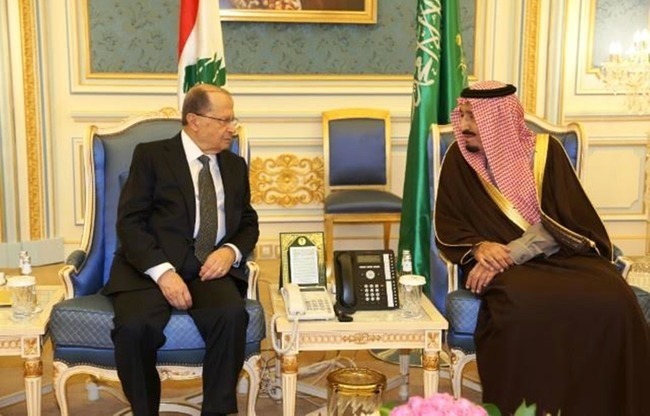Qasem Mohebali told the Strategic Council on Foreign Relations that the current interim government in Lebanon is the same government which was forced with the cooperation of the 8 March front i.e. the coalition between Hezbollah and Michele Aoun and its foreign minister is close to Amal movement and would normally adopt stances different that other members of the cabinet as well as the president.
Referring to the diplomatic tension between Saudi Arabia and Lebanon and the criticisms by some cabinet members and politicians of Lebanon over the remarks of the Lebanese foreign minister concerning the states which created and supported ISIS as well as the necessity of maintaining the Hezbollah weapons, he said the 14 March front and Saad Hariri have closer ties with Saudi Arabia.
“They are allies to Saudi Arabia. Considering that the Lebanese president emphasizes relations with Saudi Arabia, such remarks created a division inside the interim government and raised harsh criticisms by the Arab countries of the Persian Gulf. And ultimately, the Lebanese foreign minister resigned.”
Lebanon affected by foreign interventions
This analyst of Middle East issues stressed that in Lebanon, all the currents basically have a foreign ally and it is the product of a regional and international understanding that form the government in Lebanon. The agony of Saudi Arabia towards the remarks by Lebanese foreign minister is effective in creating crisis for the formation of government in this country.
He said: there is still no understanding between parties for the formation of the government under the leadership of Mr. Hariri and these differences do not allow the possibility of the formation of a sustainable government in Lebanon. Lebanon is affected by foreign interventions and without domestic and regional understanding as well as some trans-regional powers, the formation of the government in Lebanon seems impossible.
Mohebali referred to some economic restrictions imposed by Saudi Arabia on Lebanon after remarks by the Lebanese foreign minister and said on its repercussions that “Lebanon nearly lacks sufficient resources to administer the state of affairs without help from Persian Gulf countries and especially Saudi Arabia. And we are witness to the protests and dissatisfactions of people concerning their living conditions. Notwithstanding, until these countries are not prepared and an understanding is not reached, it would be impossible to become ready to offer financial help to Lebanon and or invest in that country.”
Positions of the foreign minister regarding Saudi Arabia does not reflect the approach of the Lebanese government
On the roots of such a diplomatic tension with Saudi Arabia and the belief of the Lebanese government that ISIS recieves financial support from the Arab countries of the Persian Gulf, he said the Lebanese government never raises such an approach about Saudi Arabia.
“This government has basically been in alliance with tribes and political groups and any tribe or group enters the government with their own positions and such positions cannot be considered as the position of the government and whole Lebanon”.
Referring to the harsh reaction of Saudi Arabia and some Arab states such as the UAE, Bahrain, Kuwait, Egypt and the Persian Gulf Cooperation Council concerning the outcomes of this tension and the next measures of such countries in Lebanon, Mohebali said if in such a framework and arrangement, interests of Saudi Arabia and groups supported by Riyadh are secured, pressures will reduce and their policies will change. Otherwise, pressures will continue on Lebanon and they will create obstacles so as a stable government is not formed in Beirut.










0 Comments